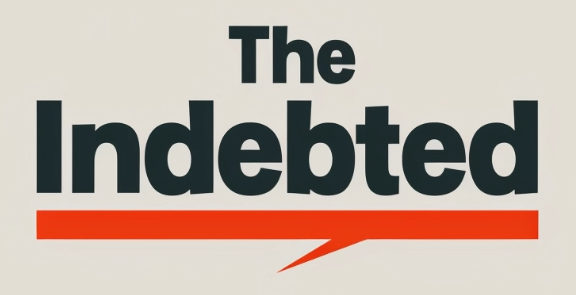Debt is a common financial issue that affects millions of people worldwide. While it is a necessary part of modern life, it can also have a significant psychological impact on individuals. The stress of managing debt can lead to anxiety, depression, and other mental health issues. In this article, I will explore the psychological impact of debt and provide coping strategies for those struggling with debt-related stress.
Studies have shown that debt can have a profound impact on mental health. According to a report by the American Psychological Association, financial stress is a significant source of anxiety for many Americans, and debt is a significant contributor to this stress. The report also found that people with high levels of debt are more likely to experience depression, anxiety, and other mental health issues.
Fortunately, there are coping strategies that can help individuals manage the psychological impact of debt. These strategies include creating a budget, seeking professional help, and practicing self-care. By implementing these strategies, individuals can improve their mental health and reduce the stress associated with debt.
Understanding Debt and Its Psychological Repercussions
As someone who has experienced the psychological impact of debt firsthand, I understand how overwhelming it can be. In this section, I will discuss the nature of debt and its impact on mental health, including stress, anxiety, and depression.
The Nature of Debt and Mental Health
Debt is a financial obligation that can have a significant impact on mental health. It is a source of stress and anxiety for many people, especially when they are unable to meet their financial obligations. According to a study published in the Journal of Family and Economic Issues, individuals with debt are more likely to experience psychological distress and depressive symptoms than those without debt.
Stress and Anxiety from Financial Obligations
The stress and anxiety caused by debt can be overwhelming. It can lead to sleepless nights, strained relationships, and a sense of hopelessness. The fear of not being able to pay bills on time, or the fear of being harassed by debt collectors, can be debilitating.
One study published in the Journal of Health and Social Behavior found that individuals with high levels of debt have a greater risk of developing anxiety disorders. The study also found that those with debt are more likely to report poor physical health, which can further exacerbate mental health problems.
Depression and Debt: The Vicious Cycle
Depression and debt are often intertwined in a vicious cycle. Debt can lead to depression, and depression can lead to more debt. According to a study published in the Journal of Affective Disorders, individuals with debt are more likely to experience symptoms of depression than those without debt.
Depression can make it difficult to manage finances, which can lead to more debt. It can also make it harder to find employment or maintain healthy relationships, which can further exacerbate financial problems.
The Socioeconomic Factors of Debt
Debt is a common financial stressor that can have a significant impact on one’s psychological well-being. In this section, I will discuss the socioeconomic factors of debt, including poverty, age groups, and socioeconomic status.
Poverty and Its Relation to Debt
Poverty is a significant risk factor for debt. Individuals living in poverty are more likely to have low income and experience financial strain, making them more vulnerable to debt. According to a systematic review, low socioeconomic status is associated with higher levels of debt and depression.
The Impact of Debt on Different Age Groups and Socioeconomic Status
Debt can affect individuals of all ages and socioeconomic status. However, the impact of debt may vary depending on these factors. For example, young adults may be more likely to accumulate debt due to student loans and credit card debt, while older adults may have mortgage debt and medical bills.
Unemployment and household income are also important factors that can impact one’s ability to manage debt. Individuals who are unemployed or have a low household income may struggle to make ends meet and may be at a higher risk of accumulating debt.
Physical Health and Relationships Affected by Debt
Debt can have a significant impact on both physical health and personal relationships. In this section, I will discuss some of the debt-related physical health issues and how debt strains personal relationships.
Debt-Related Physical Health Issues
Debt-related stress can lead to a variety of physical health problems. According to a study published in the Journal of Psychosomatic Research, people with high levels of debt-related stress are more likely to experience hypertension, headaches, and even heart disease. Additionally, debt can cause a lack of sleep, which can lead to a weakened immune system and an increased risk of illness.
Furthermore, debt can affect diet and exercise habits. People with debt-related stress may be more likely to engage in unhealthy behaviors such as overeating, smoking, and drinking alcohol. They may also be less likely to exercise regularly, which can lead to weight gain, decreased energy levels, and a higher risk of chronic diseases.
How Debt Strains Personal Relationships
Debt can also put a significant strain on personal relationships. Couples with debt-related stress may experience more arguments and disagreements, which can lead to feelings of resentment and frustration. According to a study published in the Journal of Family and Economic Issues, couples with high levels of debt are more likely to experience relationship dissatisfaction and even divorce.
Furthermore, debt can cause feelings of shame and embarrassment, which can make it difficult for people to open up to their partners about their financial situation. This can lead to a breakdown in communication and a lack of trust, which can further strain the relationship.
Managing Debt to Improve Well-Being
As someone who has personally struggled with debt and its psychological impact, I understand how overwhelming it can be. However, I also know that there are strategies that can help manage debt and improve overall well-being. In this section, I will discuss two important aspects of managing debt: strategies for debt reduction and the psychological benefits of financial stability.
Strategies for Debt Reduction
Reducing debt can be a challenging task, but it is essential for improving financial and mental well-being. The first step is to assess your current financial situation and create a budget. This will help you identify areas where you can cut back on expenses and allocate more money towards debt repayment. It is also important to prioritize debt with the highest interest rates, as this will save you money in the long run.
Another strategy for debt reduction is debt consolidation. This involves combining multiple debts into one loan with a lower interest rate. This can make it easier to manage debt and reduce monthly payments. However, it is important to do your research and choose a reputable lender to avoid falling into a debt trap.
Psychological Benefits of Financial Stability
Achieving financial stability can have a positive impact on mental well-being. Financial stress is a common cause of anxiety and depression, and reducing debt can alleviate this stress. According to a systematic review, financial stress derived from debt can be partially offset by positive mental well-being effects.
Having a plan for your financial future can also reduce anxiety and improve overall well-being. This can include setting financial goals, creating a savings plan, and investing in retirement. By taking control of your finances, you can reduce stress and improve your mental health.
Navigating Debt in the Wider Economic Context
As an individual, managing debt can be a daunting task, especially when considering the wider economic context. The global economy is faced with various challenges, including economic hardship, financial instability, and the COVID-19 pandemic. These challenges have a significant impact on consumer debt, making it important to understand the role of education and policy in mitigating the impact of debt.
Global Economic Challenges and Consumer Debt
Consumer debt is a significant issue in the global economy, with many individuals struggling to manage their finances. According to a study by Pew Research, around 80% of Americans are in debt, with many struggling to keep up with payments. This highlights the need for education and policy to help individuals navigate their debt.
The COVID-19 pandemic has also had a significant impact on consumer debt, with many individuals losing their jobs and struggling to make ends meet. This has led to an increase in bankruptcy and foreclosure rates, making it more important than ever to understand the wider economic context of debt.
The Role of Education and Policy in Mitigating Debt Impact
Education and policy play a vital role in mitigating the impact of debt. Financial education can help individuals better understand their finances, including debt management, budgeting, and saving. This can help individuals make informed decisions and avoid falling into debt.
Policy also plays a significant role in mitigating the impact of debt. Governments can implement policies that help individuals manage their debt, including debt relief programs and regulations on lending practices. This can help individuals avoid falling into debt and provide a safety net for those who do.





